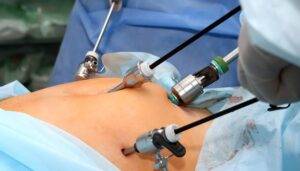What Do You Mean by PCOS?
Lifestyle Management Treatment
Your life makes the best possible impact on lifestyle therapy for polycystic ovary syndrome. Recommended lifestyle changes tend to be massive in diet or food consumption, which can fix the blood chemistry and the healthier side of hormonal balance. Exercise comes in as the important factor that boosts insulin resistance as well as reproductive health overall.
Management of weight is now a prime way of keeping symptoms under control in polycystic ovaries. Your body reacts rapidly to activity and a good diet. Organization of exercise programs and a mindful style of feeding can go a long way towards reducing syndrome-related complications and improving well-being.
Stress management techniques can actually complement your management therapy on PCOS. They may include such practices as meditation, yoga, and mindfulness to regulate hormonal patterns and reduce inflammatory responses. Mental health is central to the holistic management of this complicated hormonal condition.
Nutritional Support Treatment
Balanced nutrition helps maintain hormonal patterns and supports metabolic functions necessary to treat PCOS. Food intake can greatly influence insulin resistance and hormonal activity. Symptom management, therefore, involves focusing on whole foods, avoiding processed foods, and maintaining a balance of protein intake.
Nutritionists have several dietary approaches tailored to various presentations of PCOS. Your meal planning should thus emphasize low-glycemic foods that enhance hormone balance and different metabolic activities. This should be complemented with anti-inflammatory foods and balanced nutrients in fighting syndrome-related challenges.
Hormonal Regulation Treatment
Hormonal regularization needs specialized medication that achieves a delicate balance of individual hormones targeted towards specific symptoms of PCOS. The doctor may prescribe birth control pills or anti-androgens for the treatment of hormonal irregularities and decrease the problems associated with them. This individualized treatment plan for you will depend on your general health assessments and specific manifestations of symptoms.
They regulate monthly cycles, ameliorate hirsutism, and palliate acne symptoms. The doctors monitor the results of medications carefully and make appropriate adjustments based on their consideration of your health situation. A holistic approach ensures individualized care regarding multiple challenges arising from PCOS.
Fertility Enhancement Treatment
Reproductive difficulties require such specialized medical intervention, coupled with comprehensive support, for women undergoing fertility challenges due to PCOS. Fertility specialists initiate advanced therapeutic means, including ovulation induction medication and assisted reproductive technologies. Your individualized treatment is determined by specific reproductive health assessments and patient-centred fertility goals.
Advanced fertility treatments raise hope for women facing difficulty conceiving. Treatment protocols, including proper timing of interventions, can dramatically affect the chance of conception. The intent of the medical team is to collaboratively develop comprehensive strategies that address each woman's unique reproductive challenges.
Surgical Intervention Treatment
Laparoscopic surgery may be an option for those severely affected by polycystic ovary syndrome who fail all other forms of therapy. Laparoscopic surgery can be very effective in treating complications from persistent cysts and reproductive infertility. Your clinical team will assess each case individually so that it can be decided whether surgery is really necessary and beneficial.
Ovarian drilling is a specific surgical intervention that can help restore hormonal balance and thus improve fertility potential. The medical professional will carefully assess each individual case before proceeding with the most appropriate type of surgery. Your comprehensive treatment program will address many aspects and variables because these affect optimal health outcomes.
Management programs should specify all the possible health problems unique to each patient. The health journey requires a cooperative effort on the part of the medical professionals and the patient in crafting management strategies. A greater understanding of the patient's individual symptoms will facilitate better-targeted approaches to improvement in overall quality of life.
Women with PCOS must remain optimistic and fight for their own health. The present modern medicines, lifestyle modifications, and well-rounded support systems provide many avenues to optimally manage their conditions. Your determination to learn about and act upon PCOS can lead to much better reproductive health and wellness.




